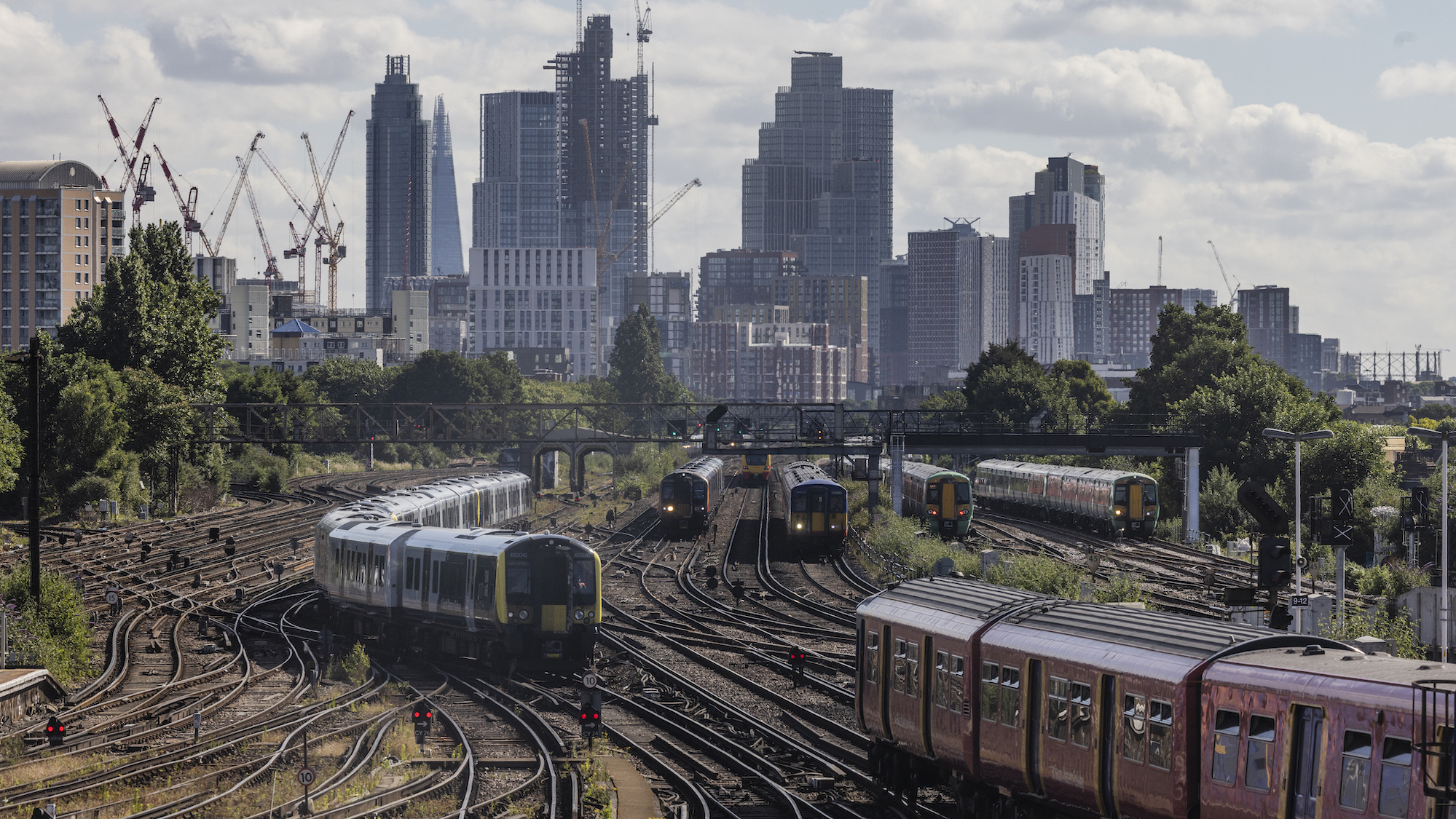Rail nationalisation: the answer to improving Britain's railways?
Labour has ambitious plans to bring train operations under public control

A free daily email with the biggest news stories of the day – and the best features from TheWeek.com
You are now subscribed
Your newsletter sign-up was successful
A Labour government would execute the "biggest overhaul to our railways in a generation" in its first term, the party has pledged.
If it wins the next general election, Labour plans to nationalise the railways within five years and create a unified body, called Great British Railways (GBR), to take over responsibility for train operations from the various rail franchises.
What is Labour planning?
Labour has pledged to put all passenger rail under national ownership once private contracts expire, in a bid to "cut waste and claw back shareholder dividends", said The Guardian.
The Week
Escape your echo chamber. Get the facts behind the news, plus analysis from multiple perspectives.

Sign up for The Week's Free Newsletters
From our morning news briefing to a weekly Good News Newsletter, get the best of The Week delivered directly to your inbox.
From our morning news briefing to a weekly Good News Newsletter, get the best of The Week delivered directly to your inbox.
The government already subsidises the rail network, and the cost has "soared" to £11 billion in 2022-23, said the Taxpayers' Alliance. Labour claims that this cost could be reduced by £680 million, by saving on dividends, reducing duplication of management and marketing, and eliminating private operators' bidding expenses.
GBR would be run by rail experts and given an "overarching remit" to "improve passenger services", said The Times, and the system would be overseen by a new watchdog, the Passenger Standards Authority.
Labour has already outlined plans to simplify ticketing, with the introduction of digital season tickets across the network alongside a pay-as-you-go system similar to London's Oyster cards. Passengers would also be offered "best-price ticket guarantees" and automatic compensation for delays.
"But there has been no promise to cap or reduce fare levels," said the paper. And the trains used in the network would remain privately owned.
A free daily email with the biggest news stories of the day – and the best features from TheWeek.com
Labour's plans "lack consistency", said Guy Taylor at City A.M., because "lesser known" rolling stock companies would continue to "underpin the entire system by leasing trains to operators". Freight rail for cargo would remain privately owned too.
Would rail services really improve?
Labour wants to "usher in a bright new future for rail" and passengers who have suffered "constant delays and cancellations", said the i news site. But some industry insiders fear that nationalising rail following 30 years of private ownership would be "fraught with difficulties" and could have "unintended consequences" that lead to "poorer service for passengers and major costs to the taxpayer".
Despite such concerns, polling by Focaldata for campaign group 38 degrees found that 66% of voters support bringing franchises back into public ownership.
But the plans have met with opposition from both sides of the political divide within Westminster. "Radical change is needed," said Labour's Lord Berkeley and Conservative MP Martin Vickers in The Telegraph, "but nationalising our railways and pitting them in a battle for scarce public resources against schools, hospitals, and defence, is folly."
"We're long enough in the tooth" to remember that passenger journeys declined by 33% under British Rail, they wrote. Instead, Britain should seek to have the "best of both worlds", with a public body like GBR "overseeing" the railways while "harnessing the private sector's track record of investment and innovation".
But others are calling for Labour to go further. Also taking trains, carriages and freight vehicles into public ownership would enable Labour to "make the investments in our railway that are needed to make it work for passengers", said the We Own It campaign group.
Richard Windsor is a freelance writer for The Week Digital. He began his journalism career writing about politics and sport while studying at the University of Southampton. He then worked across various football publications before specialising in cycling for almost nine years, covering major races including the Tour de France and interviewing some of the sport’s top riders. He led Cycling Weekly’s digital platforms as editor for seven of those years, helping to transform the publication into the UK’s largest cycling website. He now works as a freelance writer, editor and consultant.